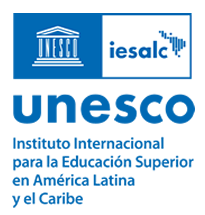PRACTICAL INFORMATION FOR RECOGNITION BY COUNTRY
This virtual space has been created primarily as a tool to help higher education students and graduates to learn about the entities that -with express legal mandate within their own jurisdiction and in the Latin American and Caribbean context-, are in charge of the recognition of academic degrees obtained abroad. Its purpose is also to help other interested organizations and individuals to easily find information about current issues on international academic and professional mobility, and on the procedures for the recognition of foreign degrees in general.
UNESCO-IESALC makes every effort to keep the information on this page up to date. However, given the enormity of the task, we invite the national bodies responsible for the recognition of academic degrees conferred abroad, as well as the general public, to send us any information that updates or complements the information gathered here to info-iesalc@unesco.org
FAQS
Is it the same to talk about Recognition and Validation?
No. The most common meaning of the term "recognition" is to certify that a title or degree awarded abroad is authentic. However, the meaning differs in some aspects among the countries of the world. In Chile, recognition is understood as the act of certifying that the studies carried out abroad exist and have similar requirements to those of Chilean higher education, although they do not necessarily correspond to a title or degree in Chile.
In Mexico, it corresponds to legalization, that is, the legal validation by apostille in accordance with the Hague Convention (legal seal) of a title or degree obtained abroad. In Peru, it is equivalent to validating the degree or title conferred by a foreign institution. Recognition is an administrative act to give validity by the sole merit of the diploma itself.
For the purposes of the New Regional Convention (see p. 6), “recognition is an administrative act by competent recognition authorities which, within the regulatory framework of each State Party, corroborates the official status and academic level and value of a diploma, degree, or certificate of a foreign education qualification, or of prior learning, or of partial studies; the said act generates academic rights equal to those held by national citizens with similar diplomas, degrees, or certificates; these rights refer to:
(a) the continuation of studies;
(b) engagement in academic teaching or research activities in higher education;
(c) the facilitation of the recognition of professional qualifications for use in accordance with national legislation.”
Is it the same to talk about Recognition and Revalidation?
Just like the different nuances of recognition in Latin America and the Caribbean, the process of revalidation is not the same for all countries in the region. However, in general terms, a revalidation is understood as the act by which a national university issues a degree of equal academic value to the applicant who presents a foreign degree, notwithstanding a different denomination. The revalidation takes place when the curricula of the degrees coincide at least 80% (variable depending on the country), and after the presentation and passing of the exams corresponding to the subjects necessary to complete the training of the applicant. If the degree presented is not comparable to any of the degrees granted by the universities of the receiving country, it cannot be revalidated.
Does the recognition process necessarily require the receiving country to issue a validation of the foreign title under consideration?
No. The purpose of the process of recognition of degrees is to determine whether a higher education degree which has been granted abroad presents similar characteristics with the diplomas conferred in the jurisdiction of the host country. In the positive event, the entity of the Administration in charge of the process bestows official recognition to the foreign degree, granting it the same academic and legal effects that are given to the national degrees. In the negative event, that is, when the characteristics of the foreign title do not resemble that of the titles conferred by the receiving country, the administrative body has the duty to deny its recognition.
Does UNESCO-IESALC provide any advisory or support service for a recognition process in any country in Latin America and the Caribbean?
No. UNESCO-IESALC is not mandated to intervene in this matter and only promotes and channels the subscription, ratification and further development of the New Regional Convention on the Recognition of Studies, Diplomas and Degrees in Higher Education in Latin America and the Caribbean, in the conviction that this type of instrument - based on clear and common criteria - will ensure greater regional mobility of students, graduates, teachers and university researchers, which is fundamental and highly necessary in order to strengthen internationalization processes, accelerate the training of human talent and favor the circulation of knowledge.
If my country has adopted and ratified both the Global Convention on the Recognition of Qualifications concerning Higher Education Higher Education and the New Regional Convention, which one applies in my country?
Both. There is no normative hierarchy between them and they are totally autonomous in the course of their further development.
If my country has adopted both conventions, which one should I choose?
Both agreements apply. In the case of normative discrepancies, the principle of specialty is raised, which the New Regional Agreement will apply with preference in the event that the title in question has been conferred by another Latin American or Caribbean country, provided that it is a subscriber to the convention.
What can I do to promote the ratification of the New Regional Convention in my country?
Check the ministerial and parliamentary contacts listed in the country of which you are a national or resident, and urge your authorities to put the ratification of the New Regional Convention on the legislative agenda.

